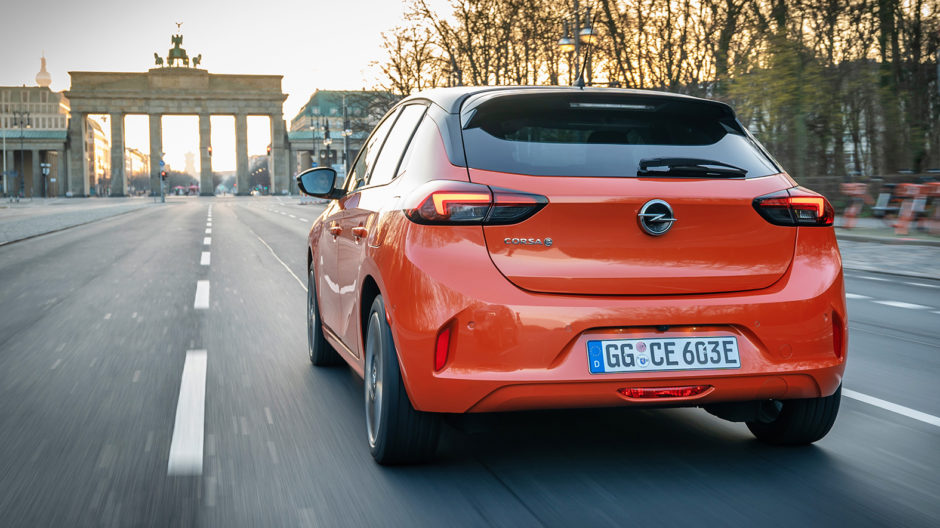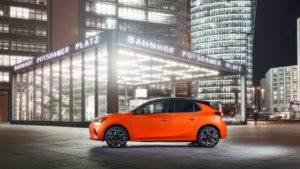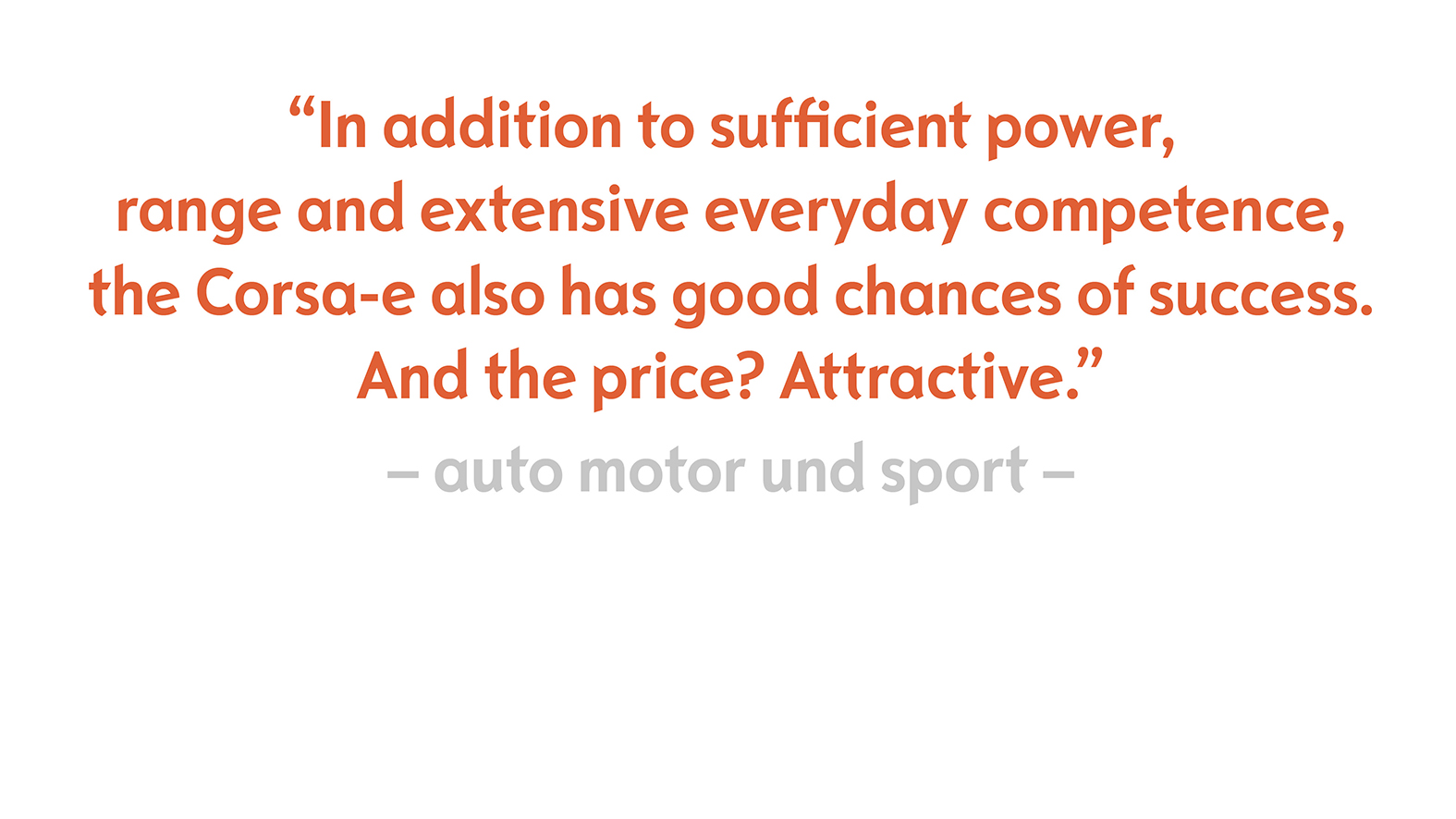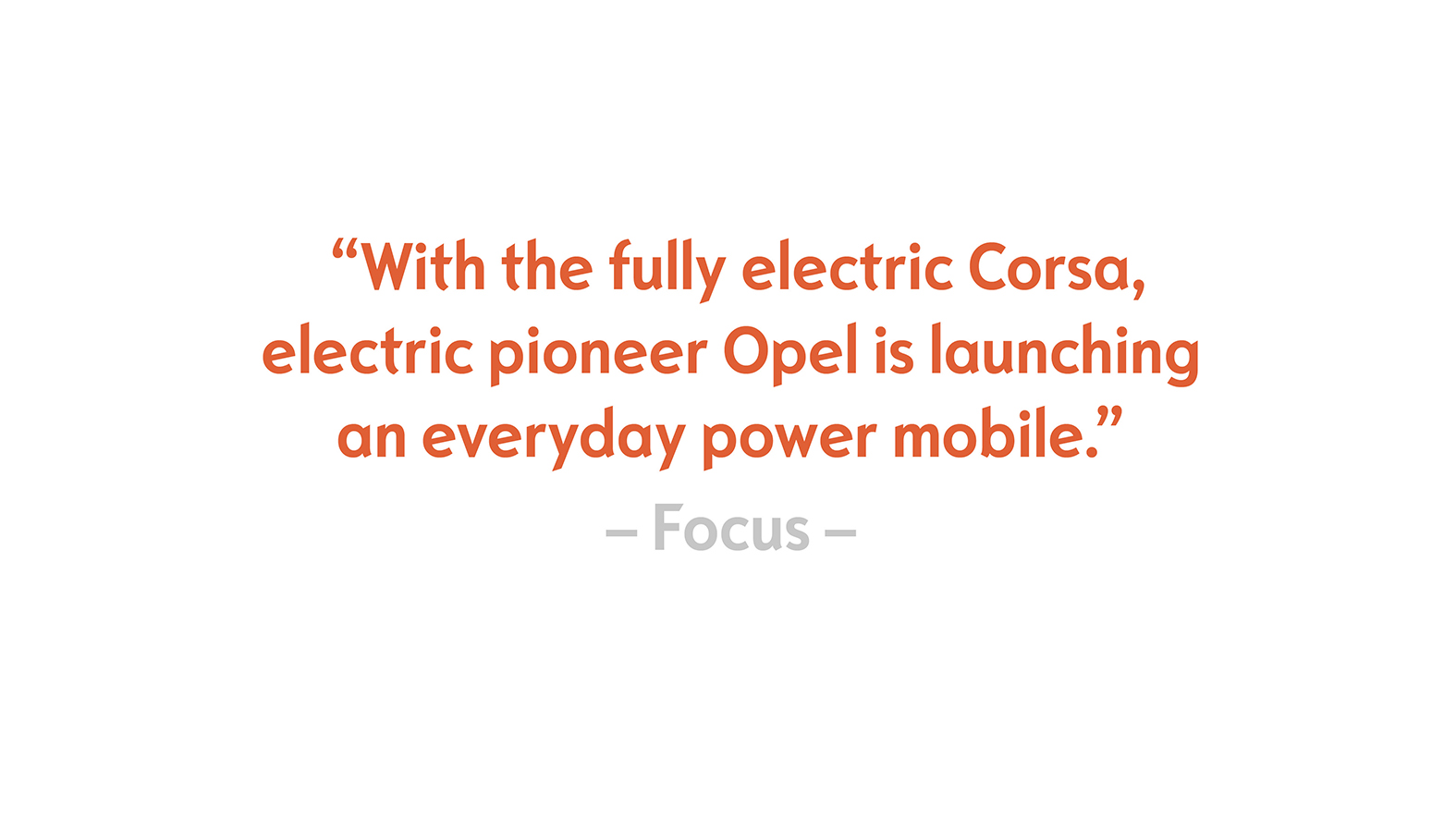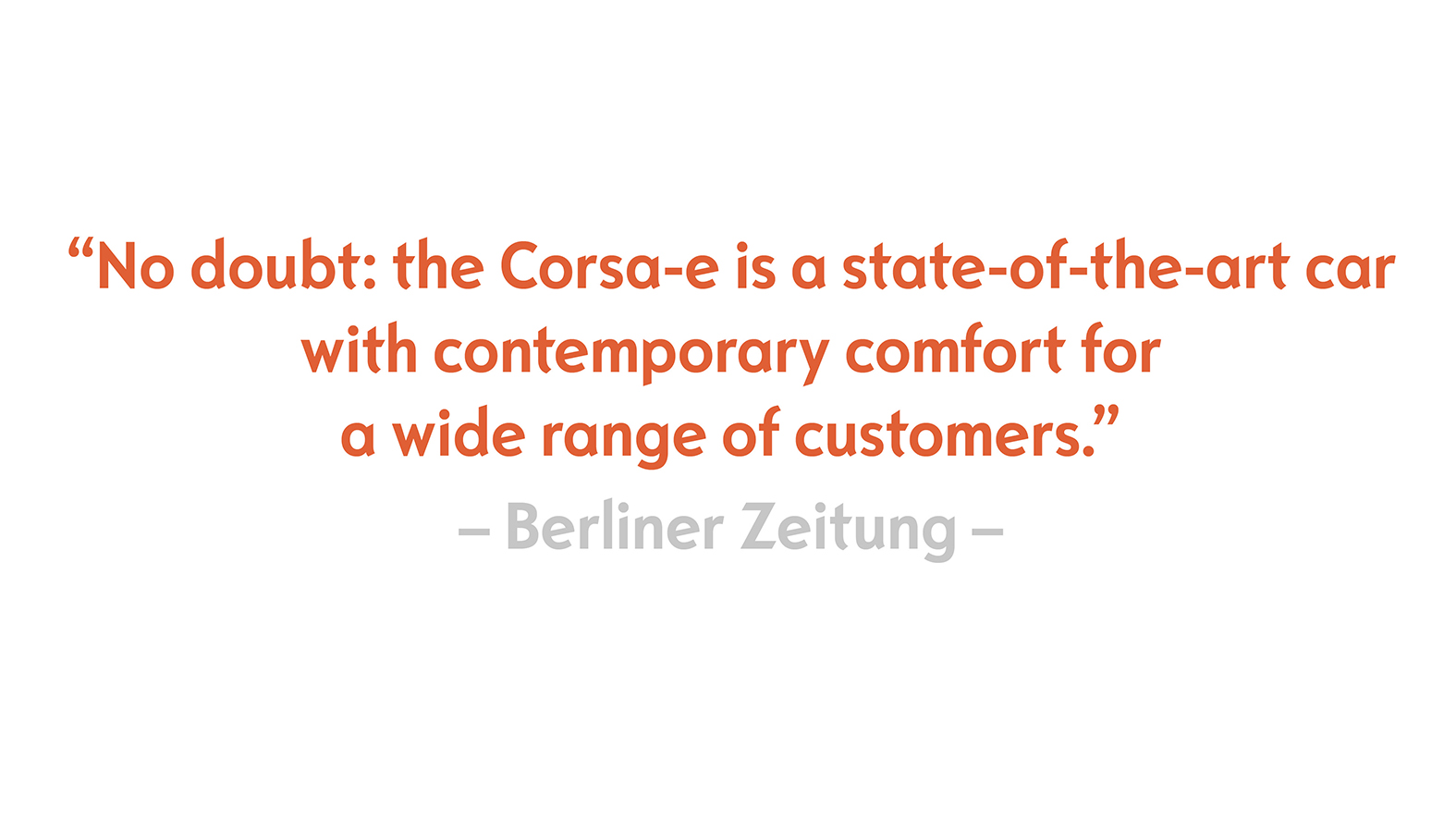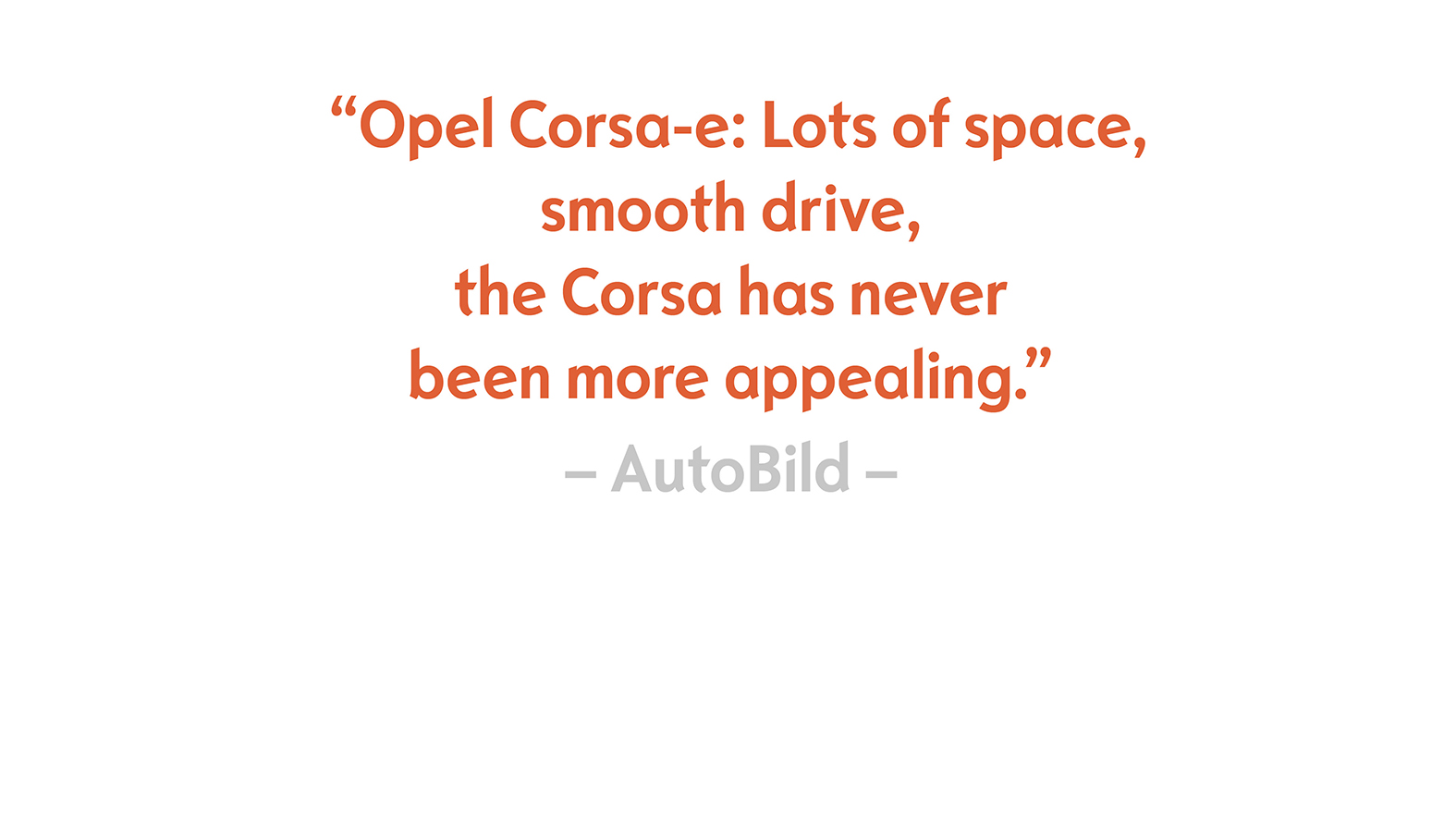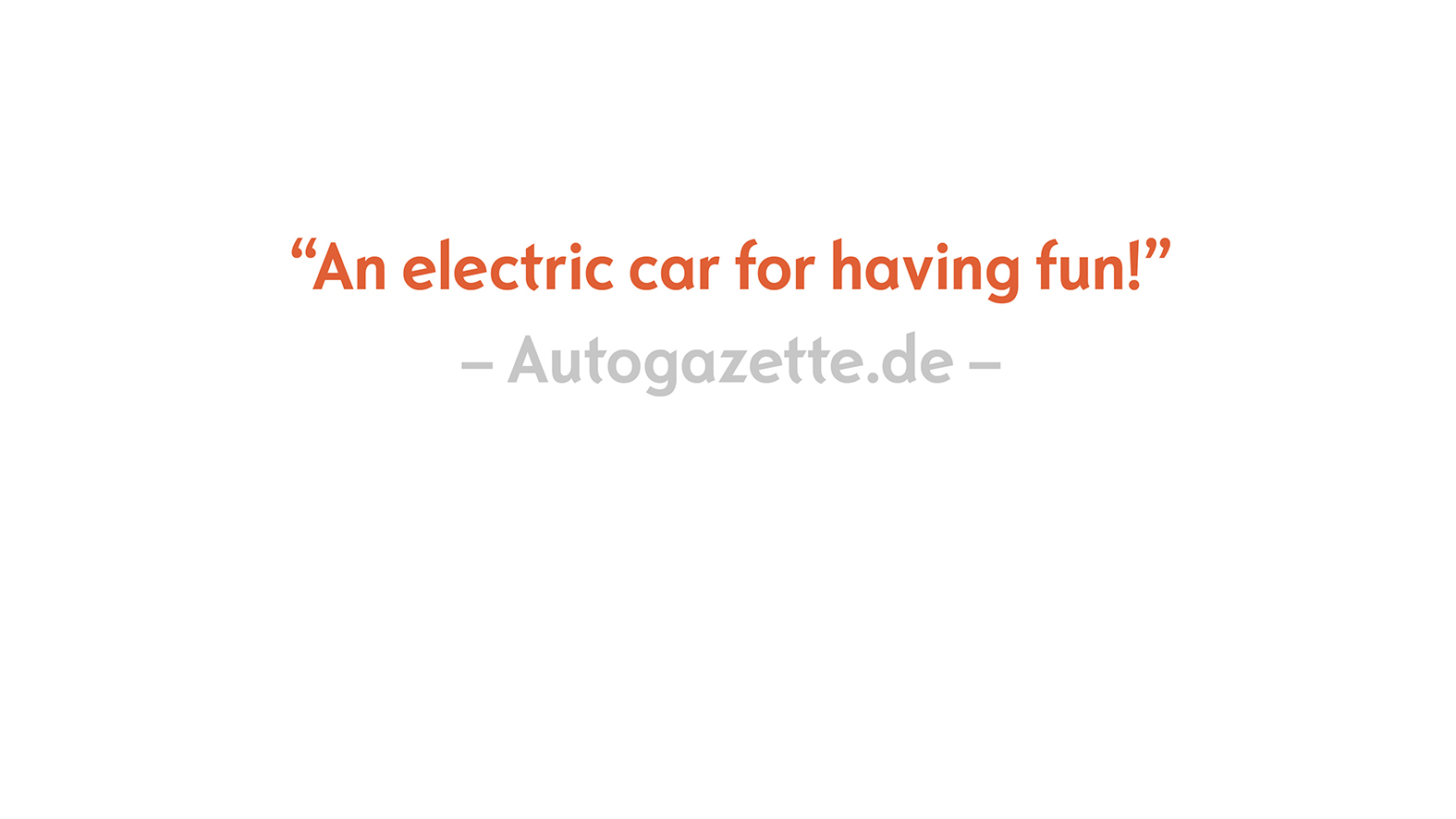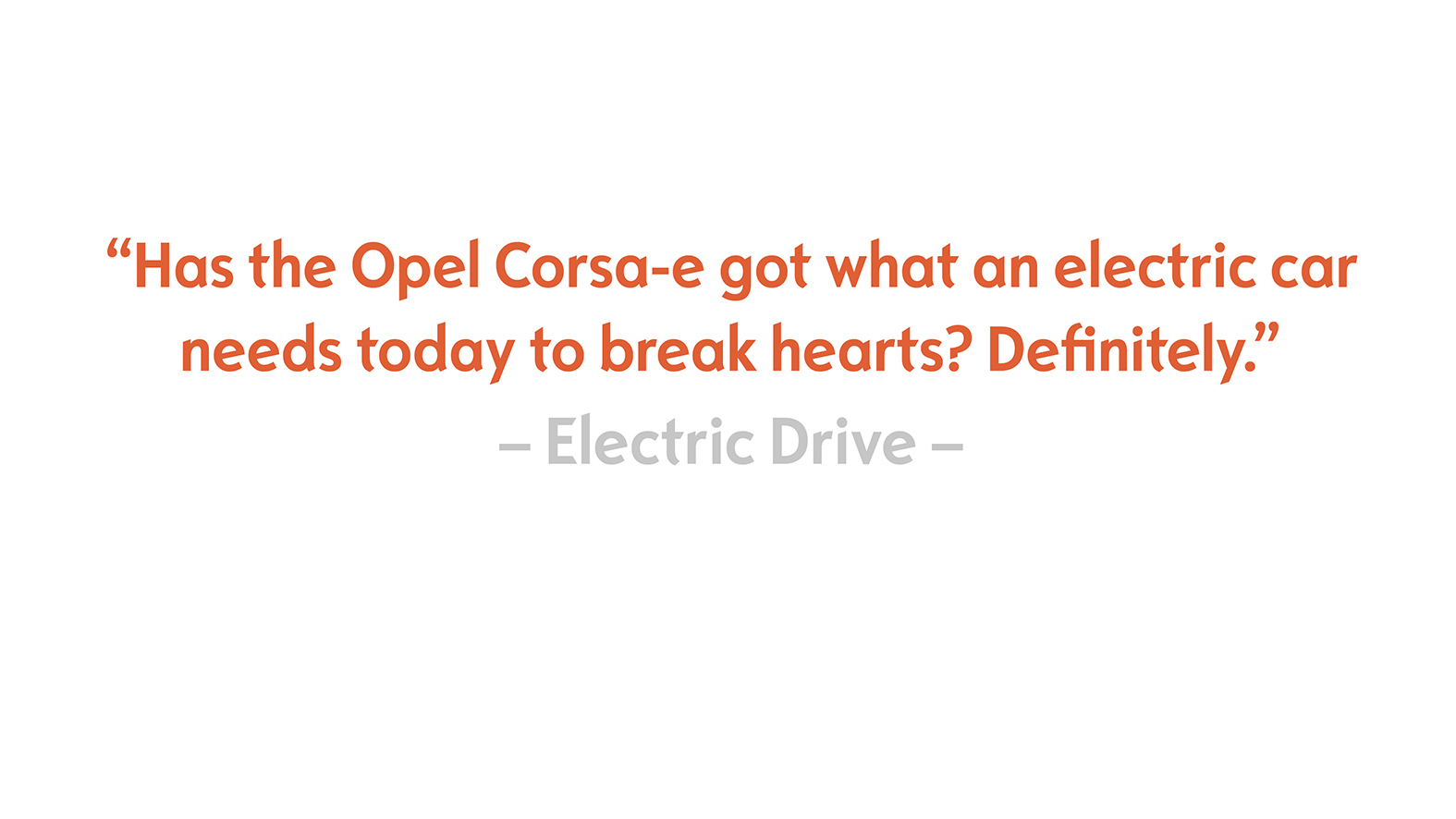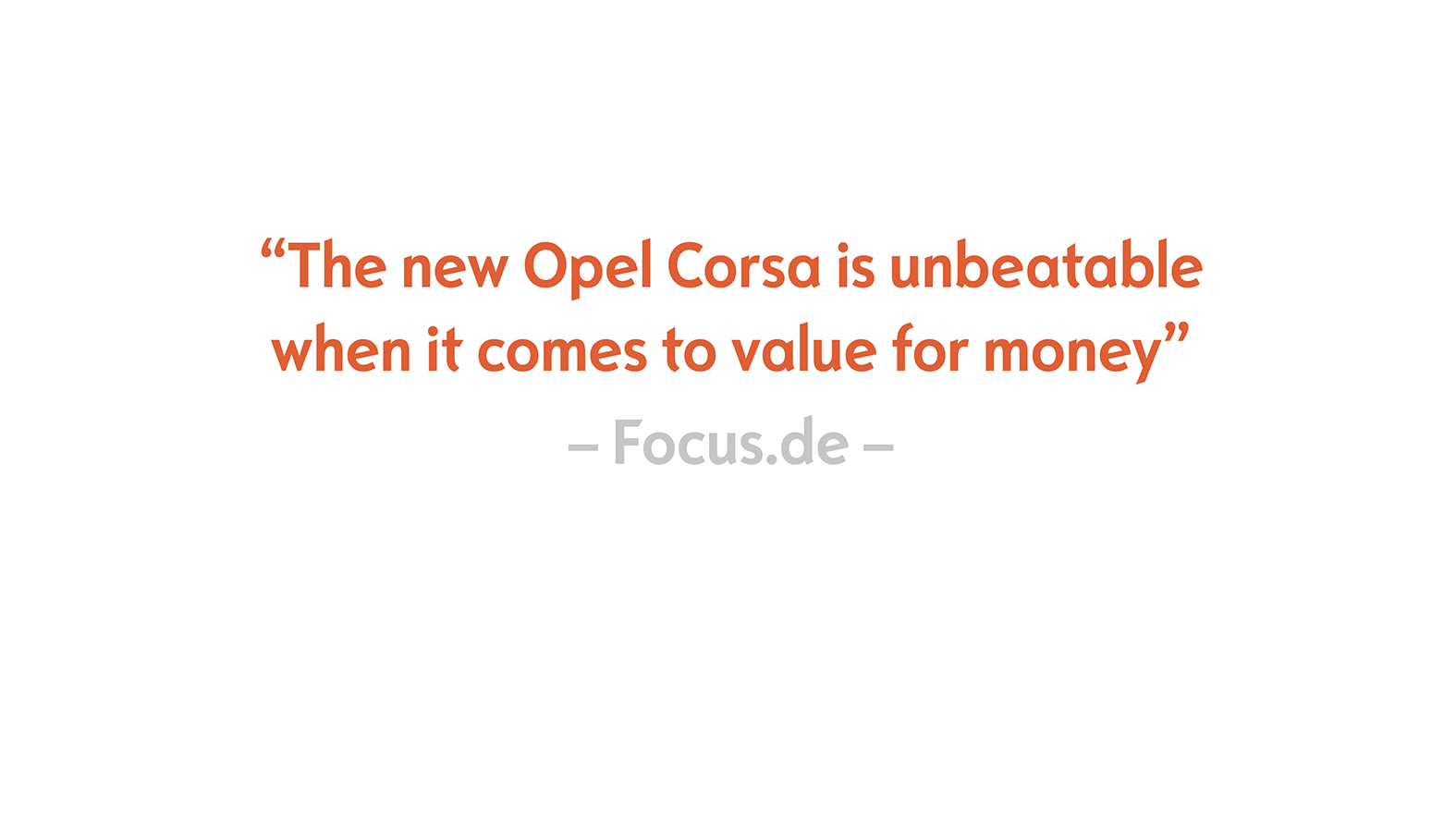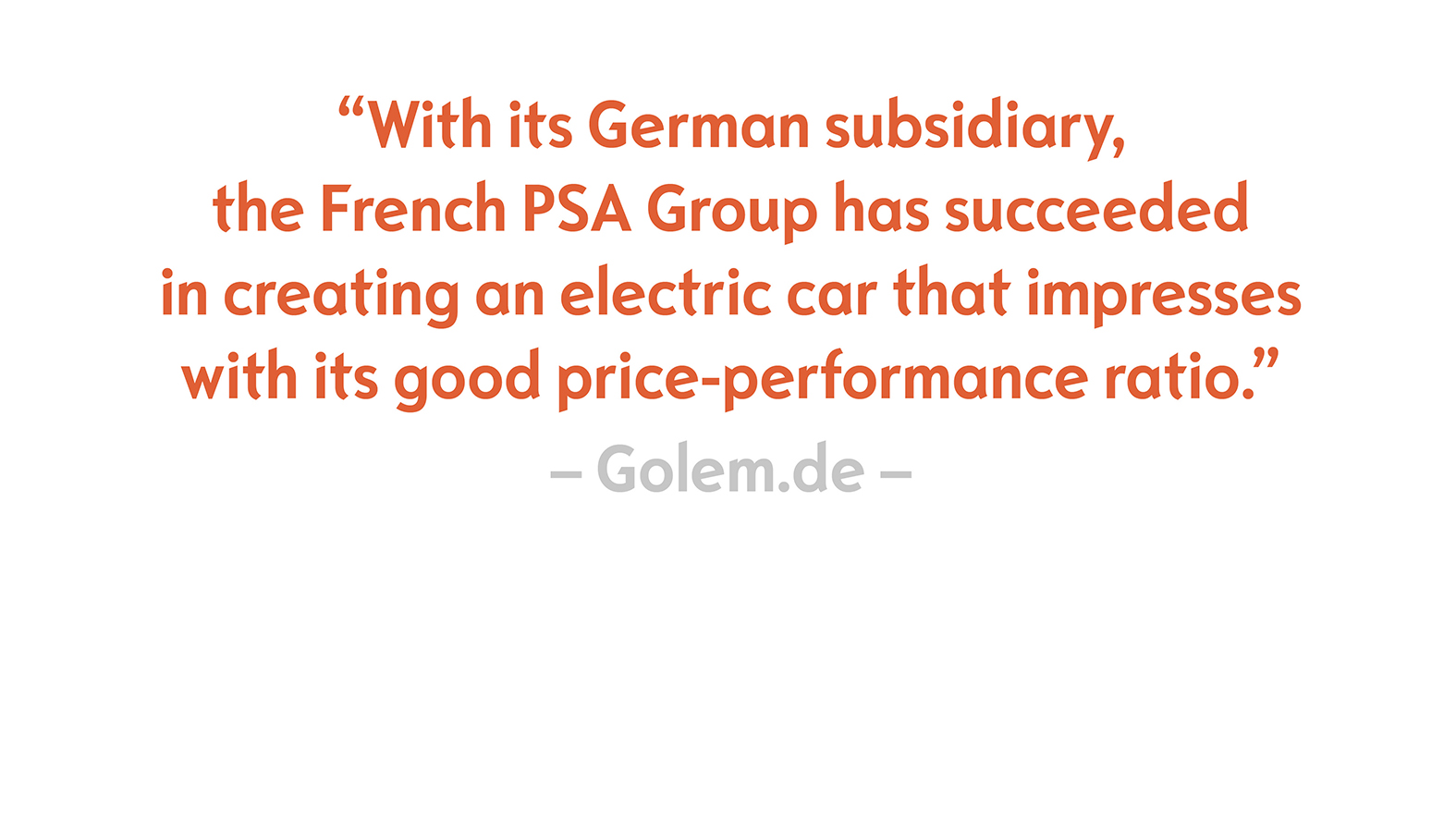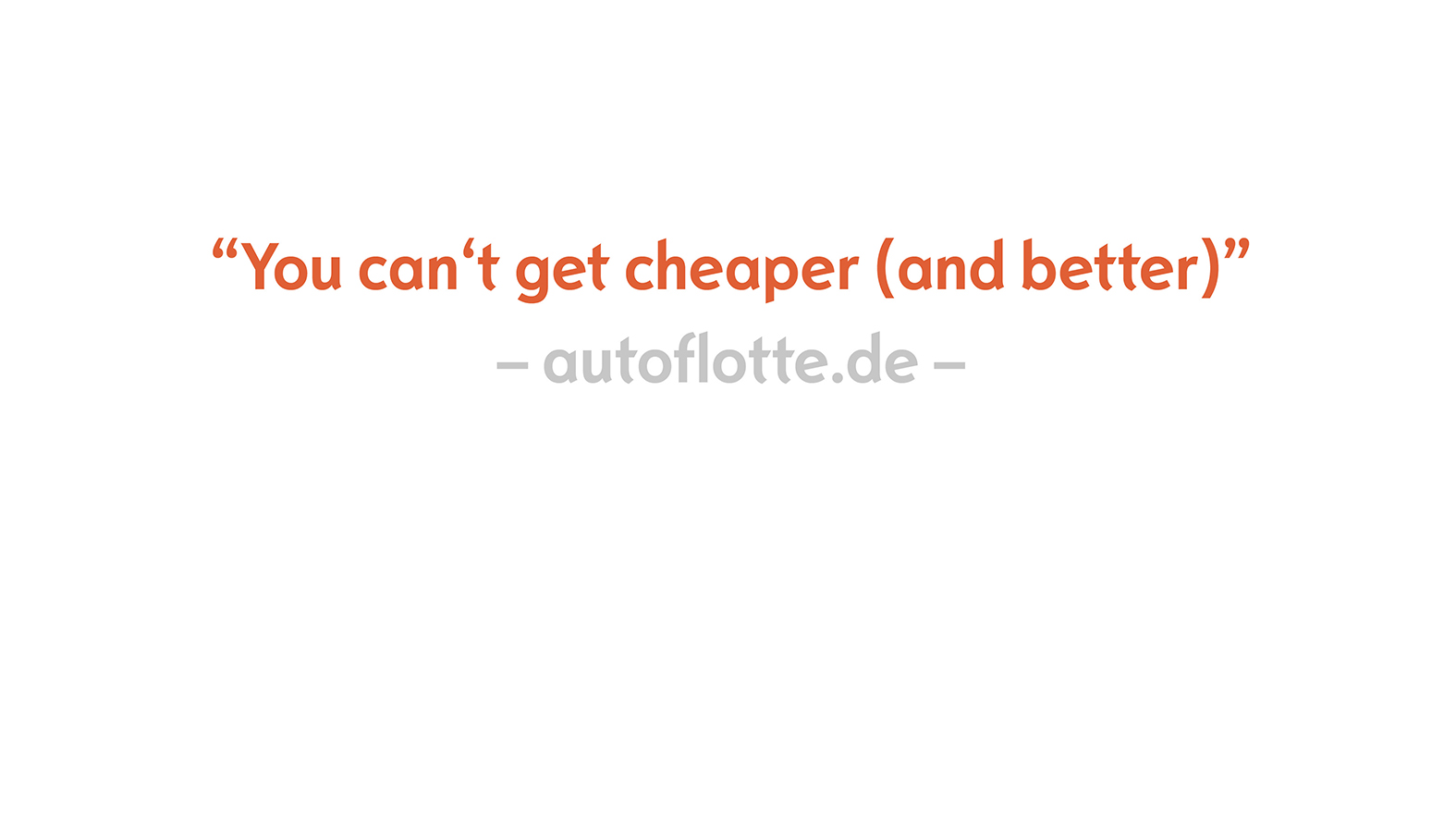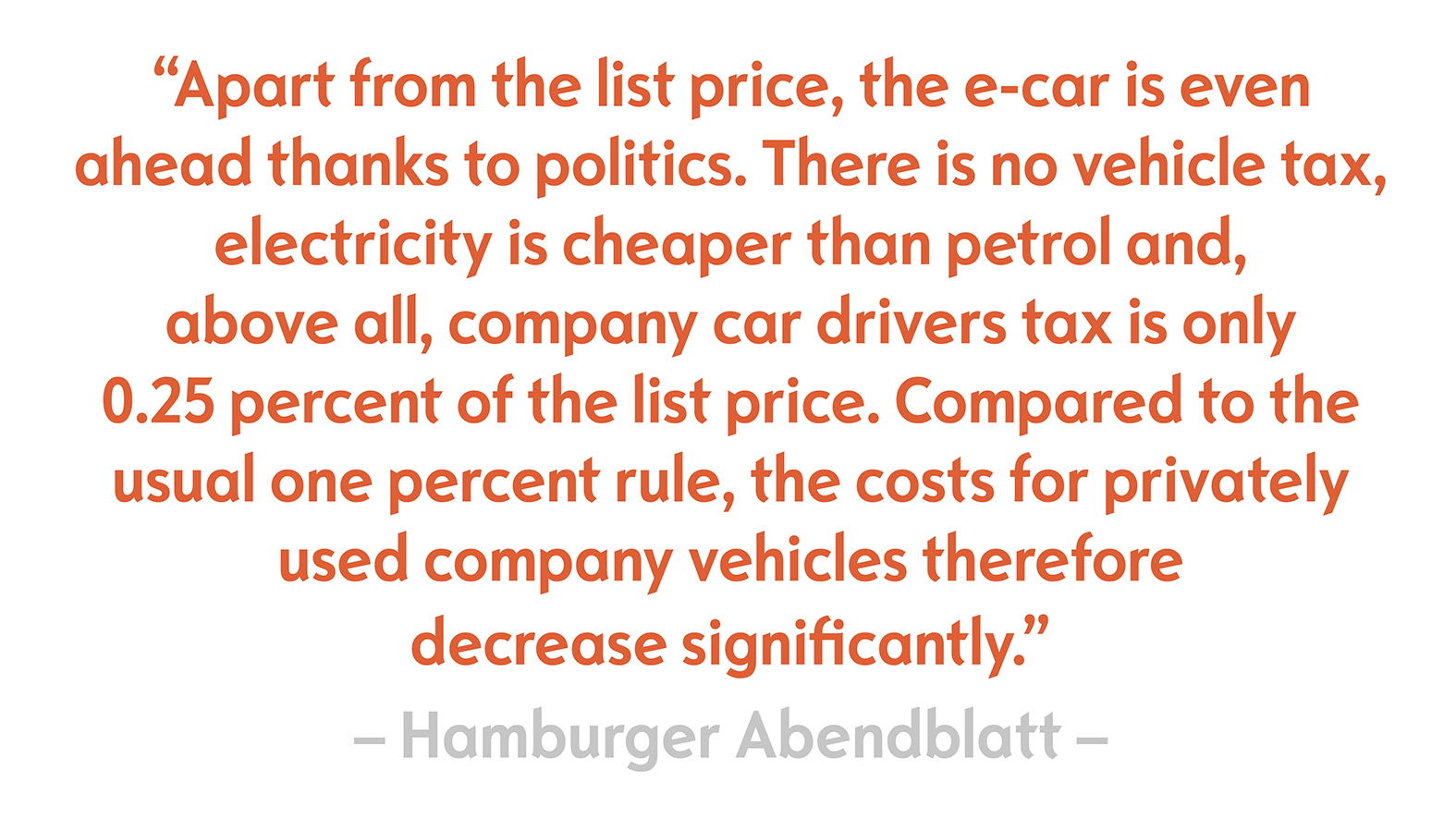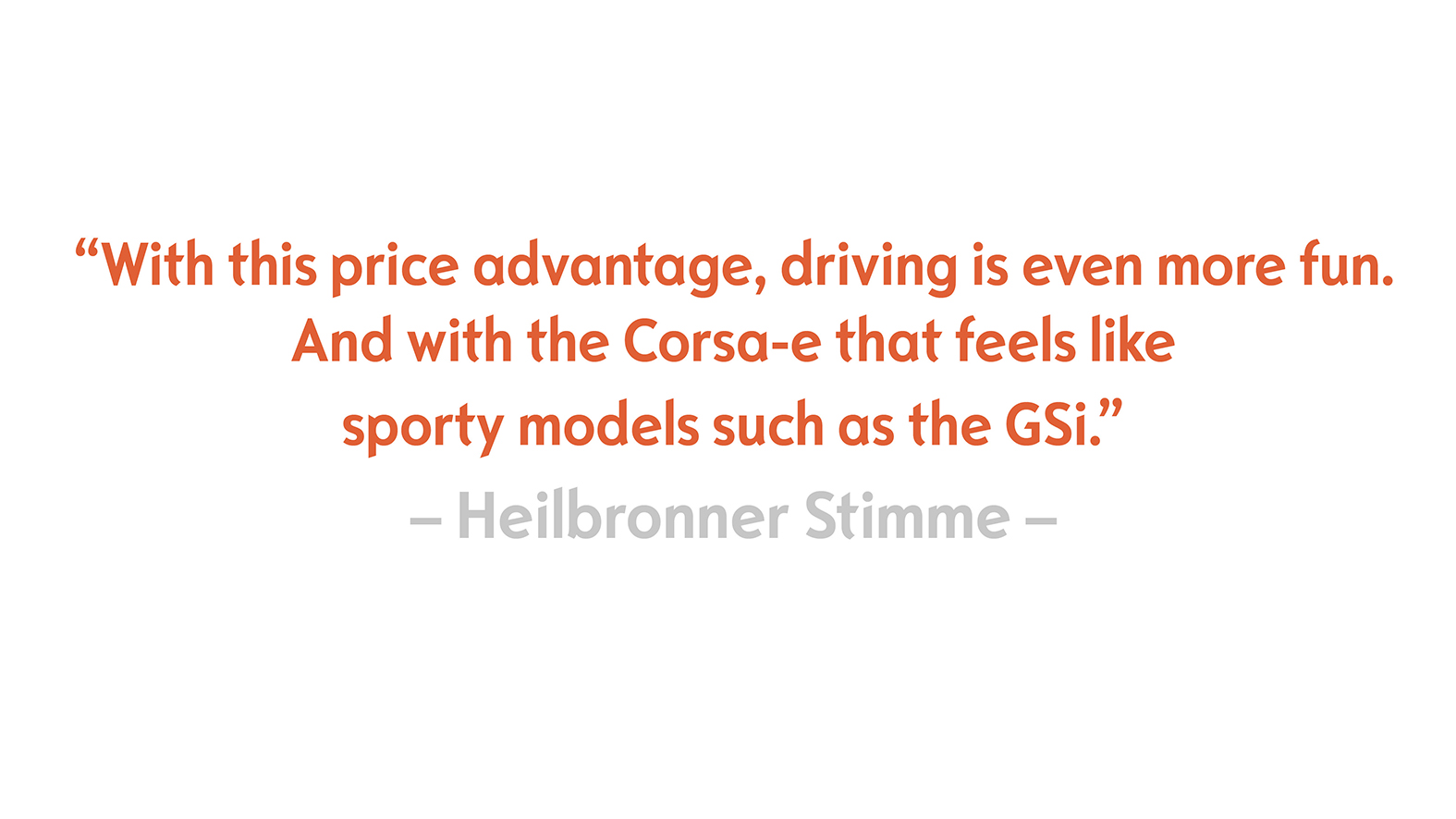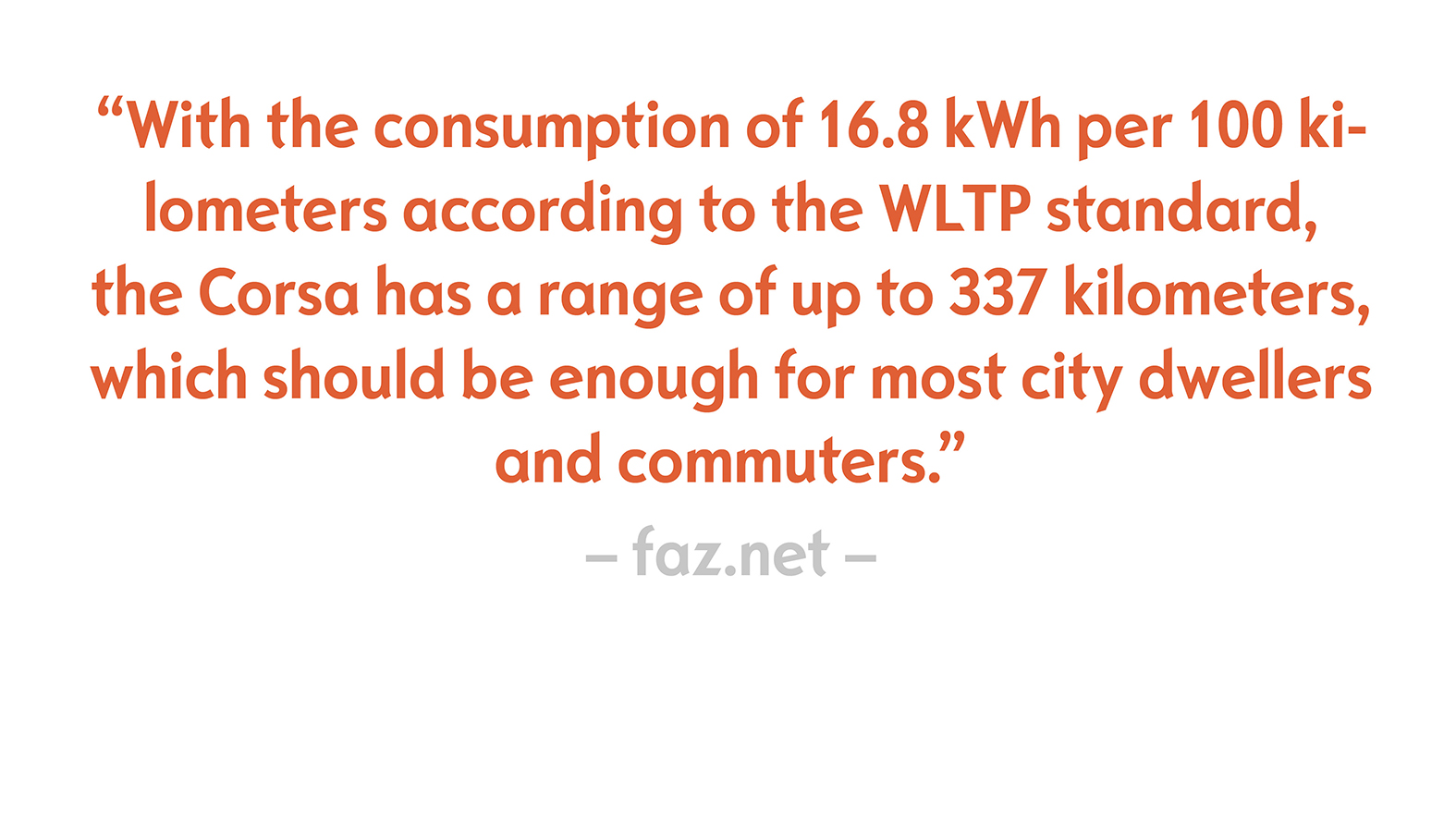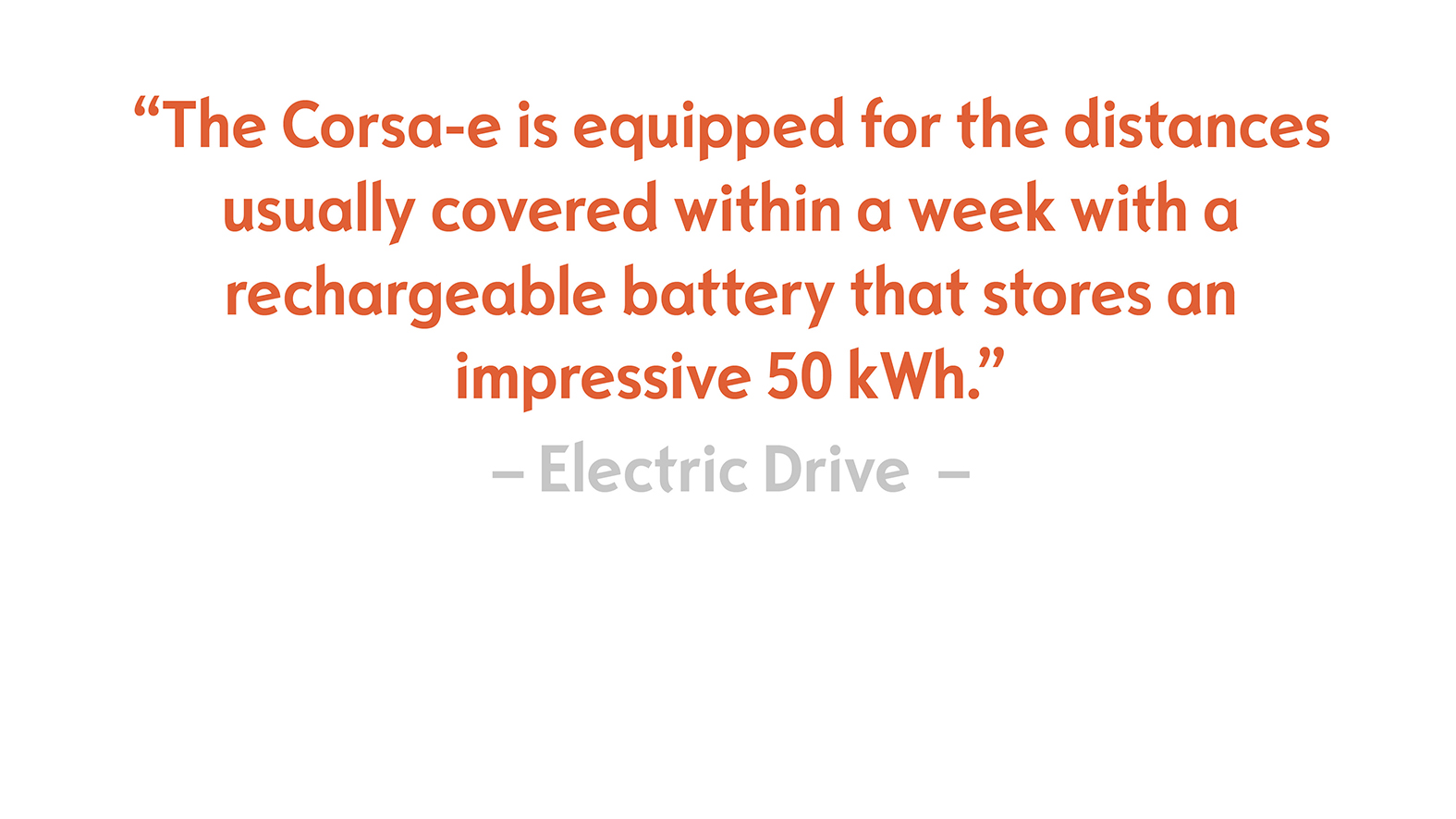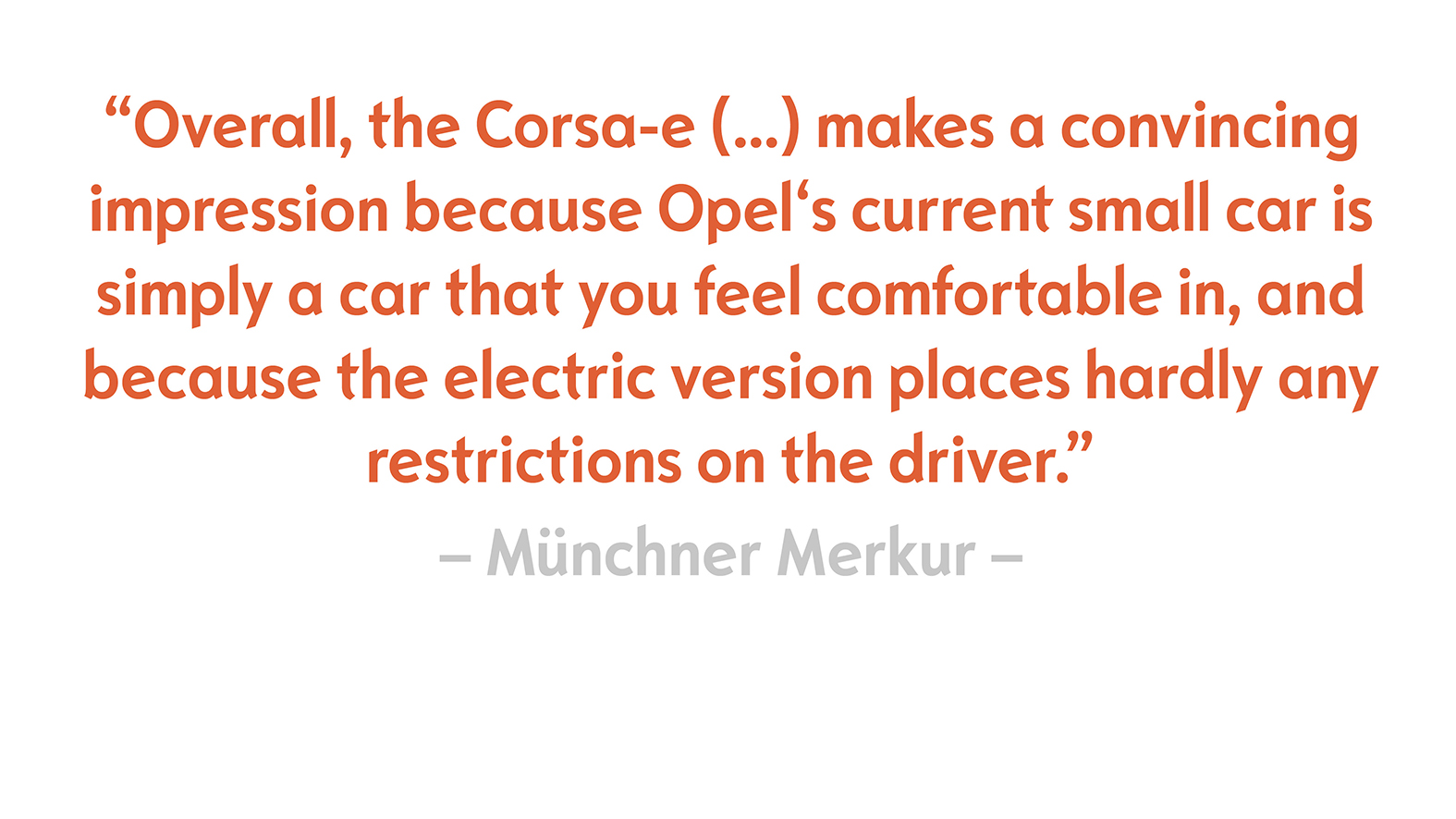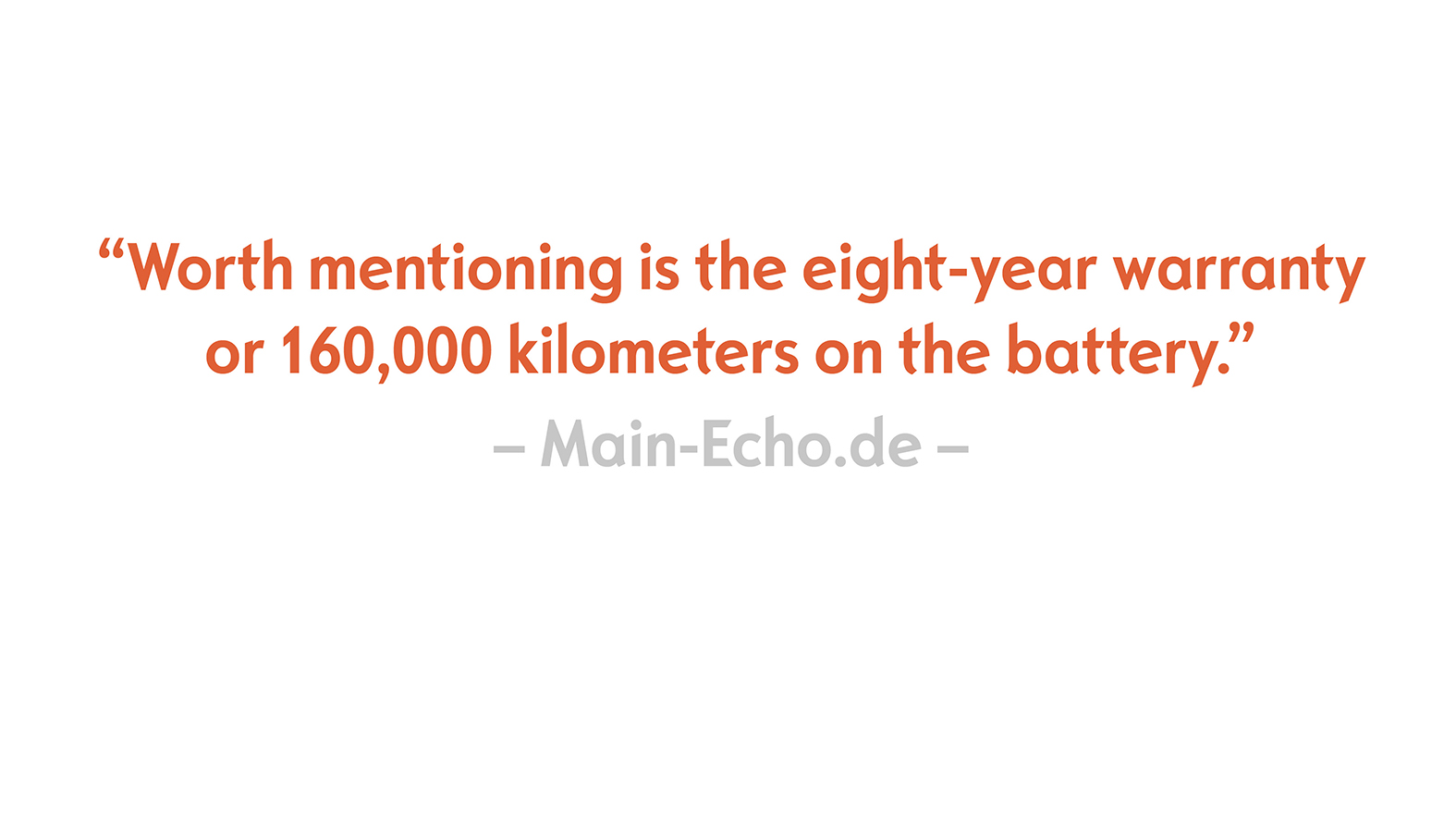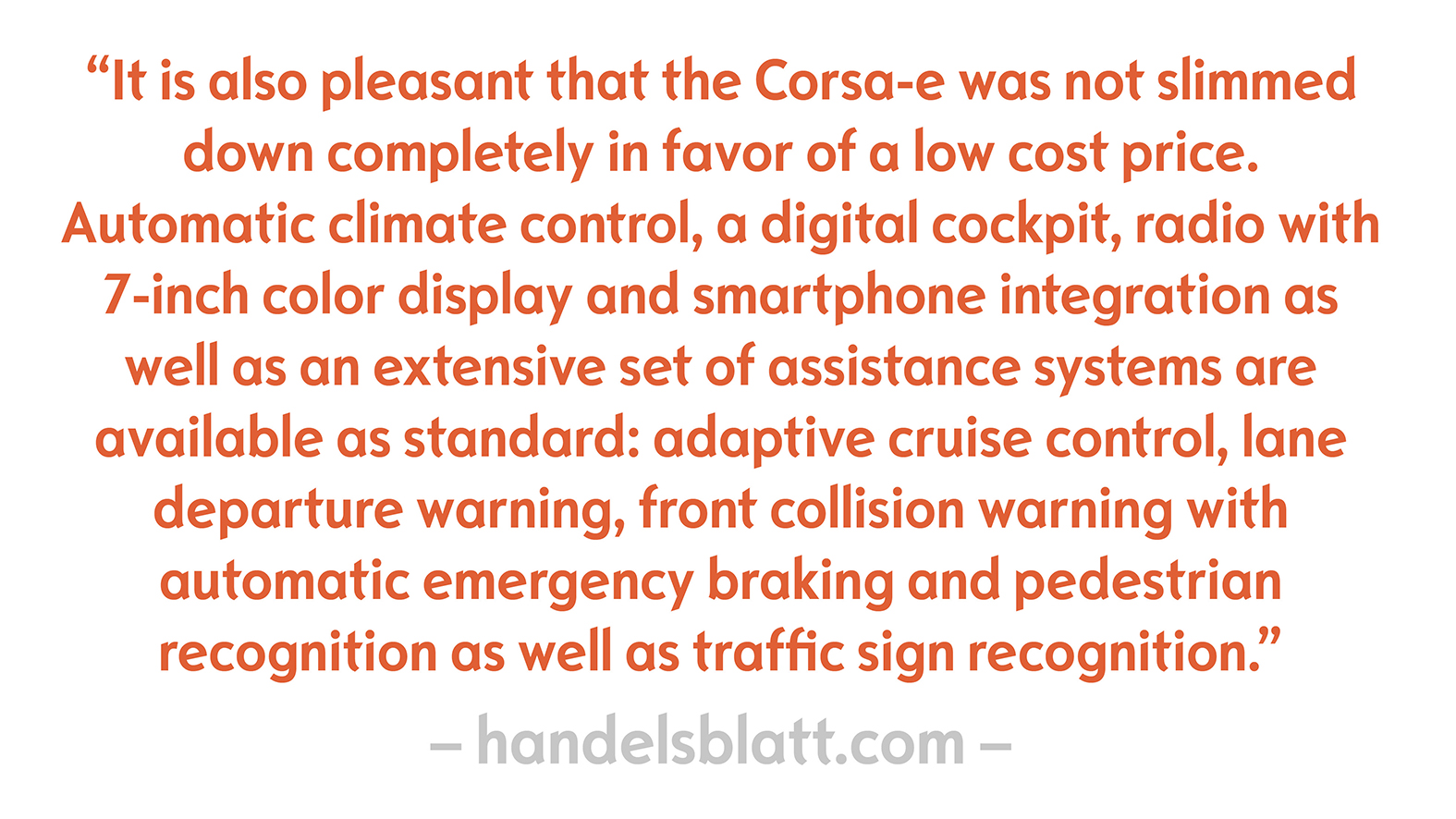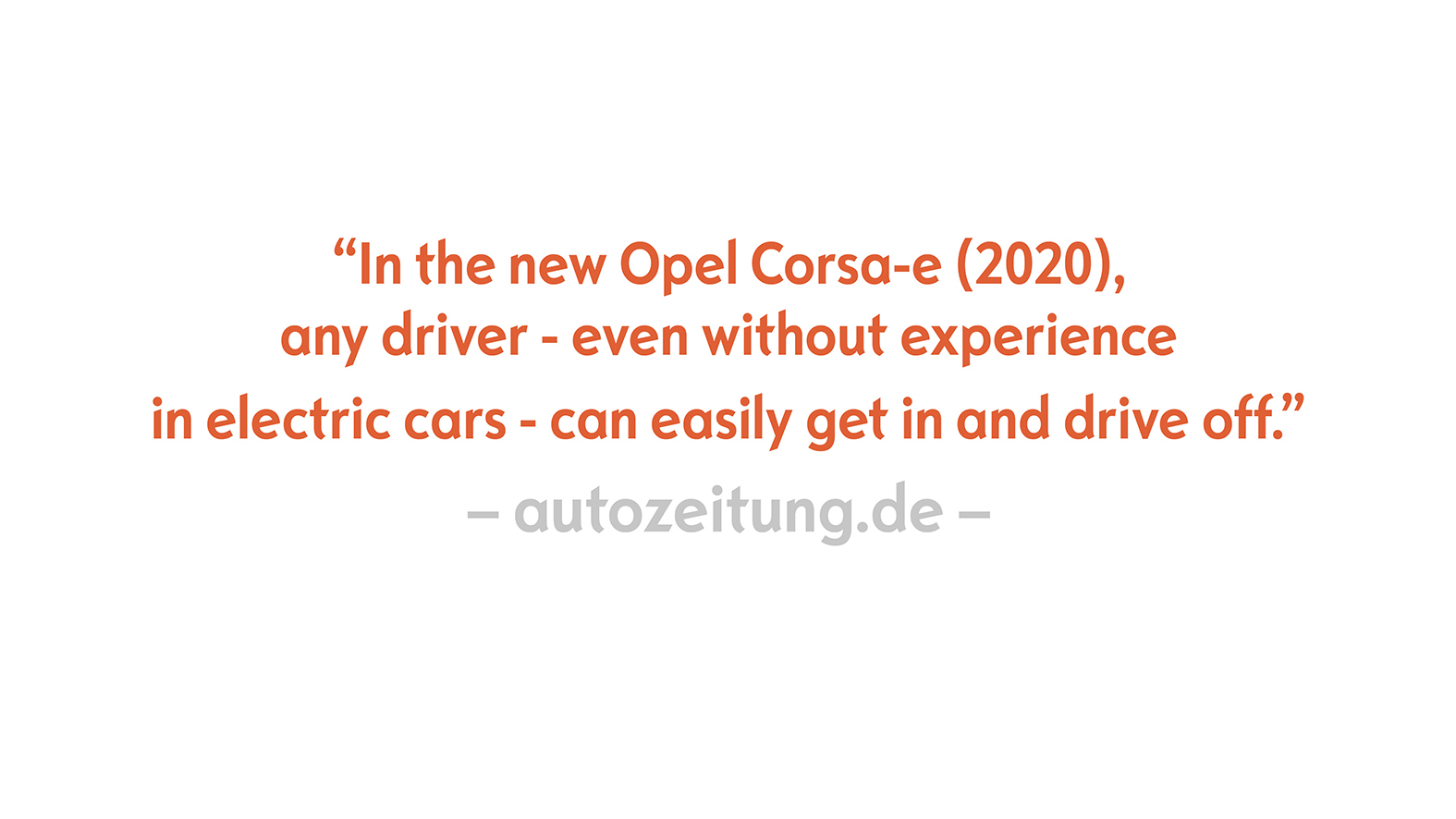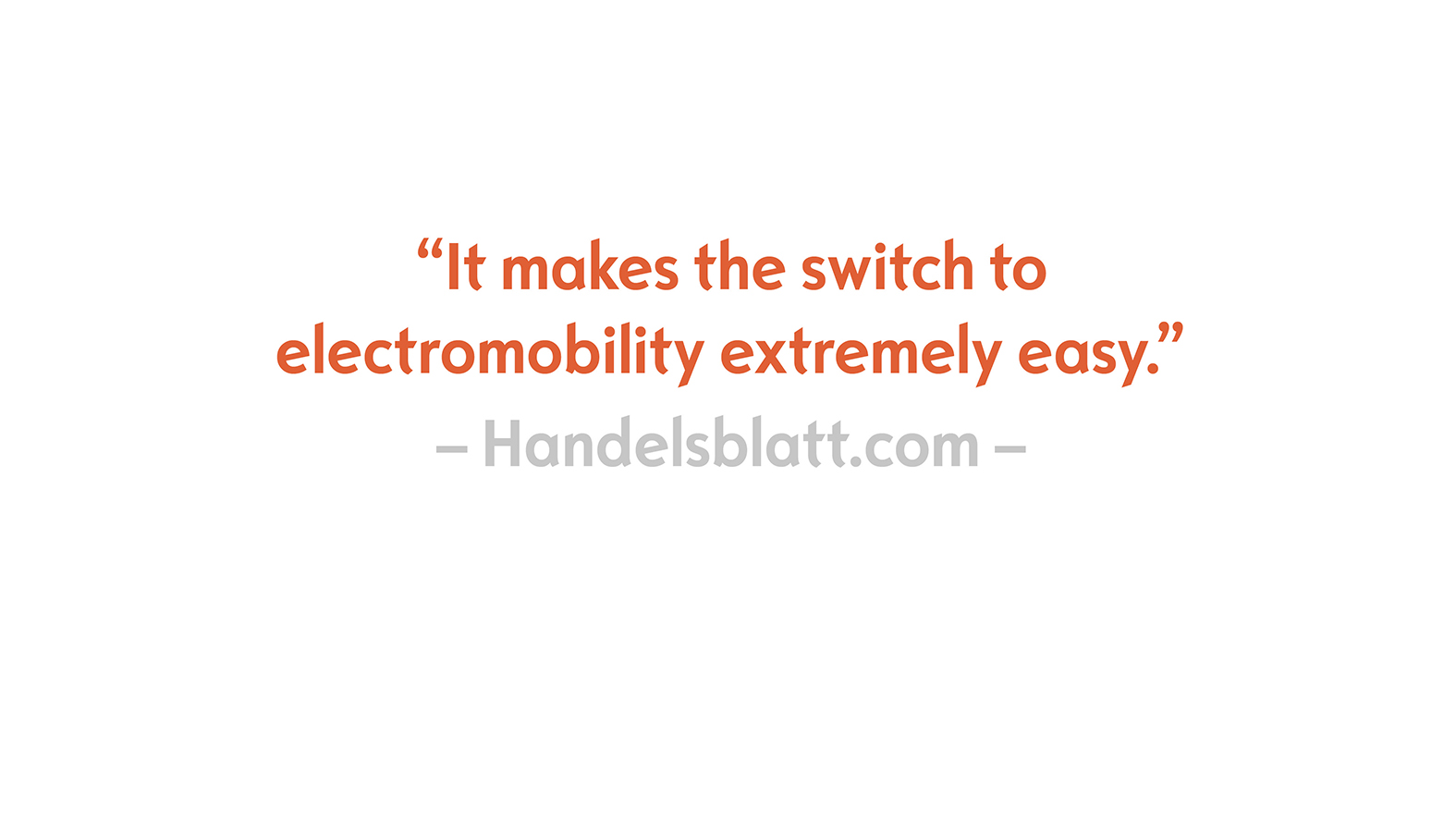Test drives between the Brandenburg Gate and Sanssouci Palace: 30 Opel Corsa-e were available to the international press in early March for the first test drives in Berlin and Potsdam. Even if Opel decided to end the event ahead of schedule after a week due to the Coronavirus, the new Corsa-e electrified the journalists. The echo in the press has been huge, also thanks to PR team’s lightning reactions: those who could not try the Corsa-e in Berlin had the opportunity to try a test vehicle individually in their hometown – straightforward and mindful of hygiene precautions.
With its 50 kWh battery, a range of up to 337 kilometres according to WLTP and top equipment, the 100 kW / 136 hp electric Opel is suitable for everyday use and locally emission-free. Already as Corsa e Selection it offers numerous state-of-the-art assistance systems. The increased environmental bonus of €6,000 reduces the price in Germany from an already modest €29,900 to just €23,330. The Corsa-e thus becomes an electric car for everyone.
![]()
PRESS COMMENTS
![]()
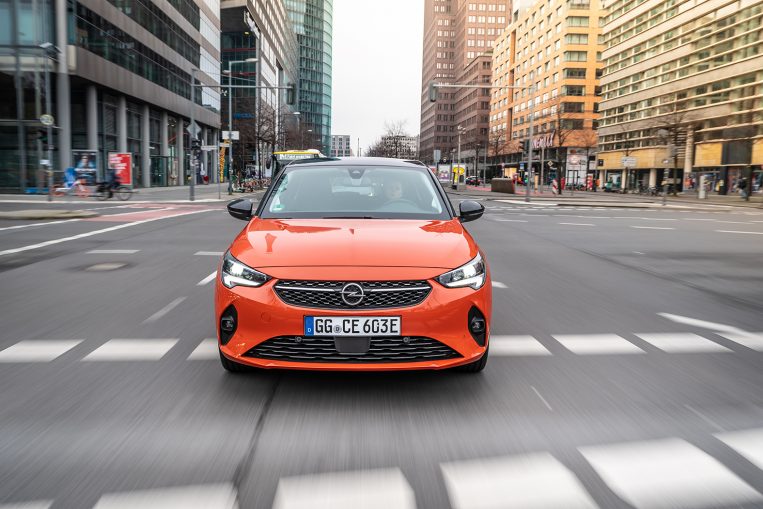
Sporty appearance: the Corsa-e with a coupé-like roof line and compact external dimensions.
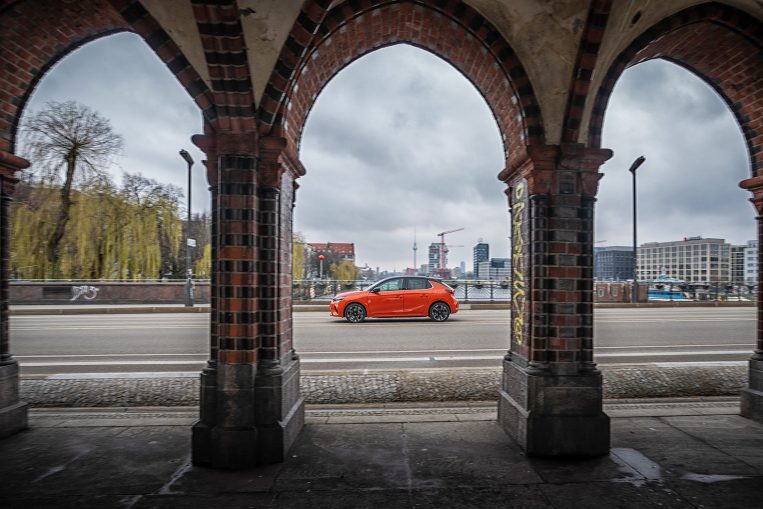
Nice prospects: the Opel e-car makes electric driving suitable for everyday use and locally emission free.
![]()
The headline from Automobilwoche trade magazine after the test drives in Berlin: “This is how the Corsa turns the city into an ‘electropolis’” . Behind the term is Berlin’s great era in the golden twenties of the 20th century. Flickering gas lanterns gave way to bright neon signs. Trams, underground trains and elevated railways ran electrically. This resulted in a new “light architecture”, often shaped by the Bauhaus movement and driven by new technologies. Yesterday’s Wilhelminian-style buildings were bathed in mild light, but new buildings such as the Opel plant in Brandenburg an der Havel shone in the splendour of the new era.
![]()
The twenties. A new industrial revolution. The world is becoming electric. E-car pioneers stand at charging stations. Berlin is the metropolis of electrification. Or as Erich Kästner put it: “Elektropolis – the automatic city”.
Electrification caused an economic upswing. At the time, Berlin had a leading position worldwide as the home of Siemens, AEG and Bergmann as well as companies like Osram and Telefunken. The first international radio exhibition started in 1924. The city was given its new nickname „Spree-Chicago“, which alluded to what was then the most modern metropolis in the world. And like in Chicago, the star architects moved to Berlin to build for the new industry.
![]()
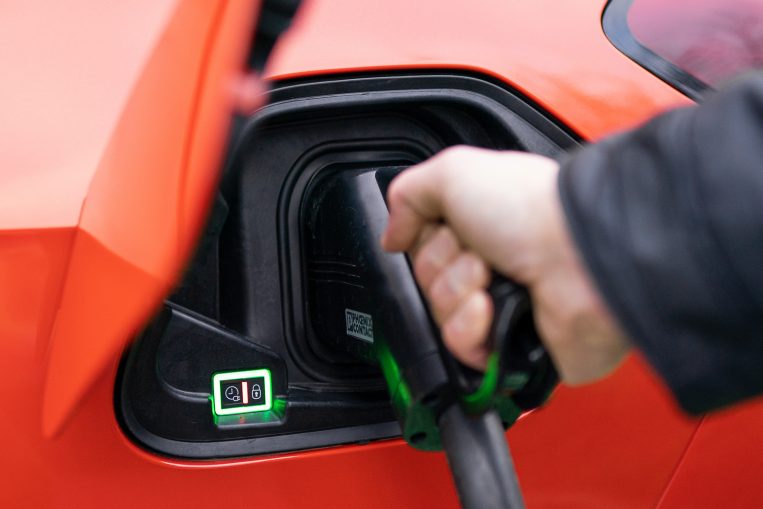
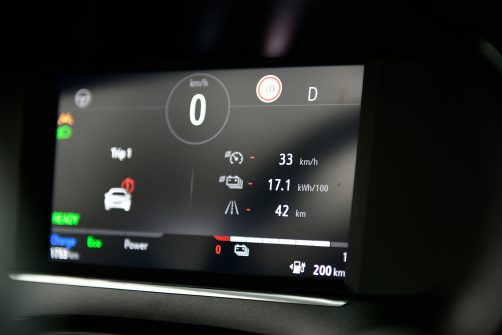
_____
The 50 kWh battery pack
is composed of 216 cells. The Corsa-e Selection is equipped as standard with a single-phase 7.4 kW on-board charger, from Corsa-e Edition upwards a three-phase 11 kW on-board charger is standard.
_____
![]()
The Gasometer Schöneberg is an industrial monument from this period. The EUREF campus is located here, where a gas power plant generated electricity in 1913. Over 3,500 people work, research and learn on the topics of energy, mobility and sustainability in more than 150 companies, institutions and start-ups in the 5.5-hectare city quarter. EUREF stands for European Energy Forum and was founded by Berlin architect Reinhard Müller in 2007. Ecologically and economically sustainable solutions make the office and science campus – which has been meeting the federal government’s climate targets for 2050 since 2014 – a unique centre for innovative future projects in Europe.
Exactly the right place for the international press launch of the new Opel Corsa-e. The press conference took place in the “workshop” right next to the gasometer, and the test drives into the city started from the EUREF campus. “Elektropolis” and the Opel Corsa-e harmonized perfectly and fascinated the international media guests.
![]()
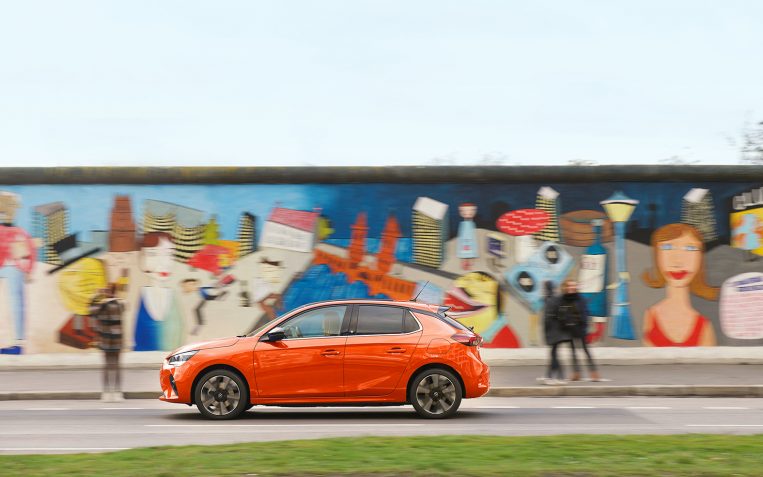
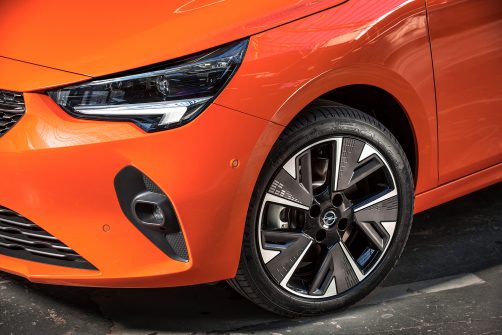
_____
Cooperation
The company inno2grid specializes in the installation of complete charging infrastructure solutions. Opel customers get everything from a single source. The e-experts take on all the work required for the installation of wall boxes.
_____
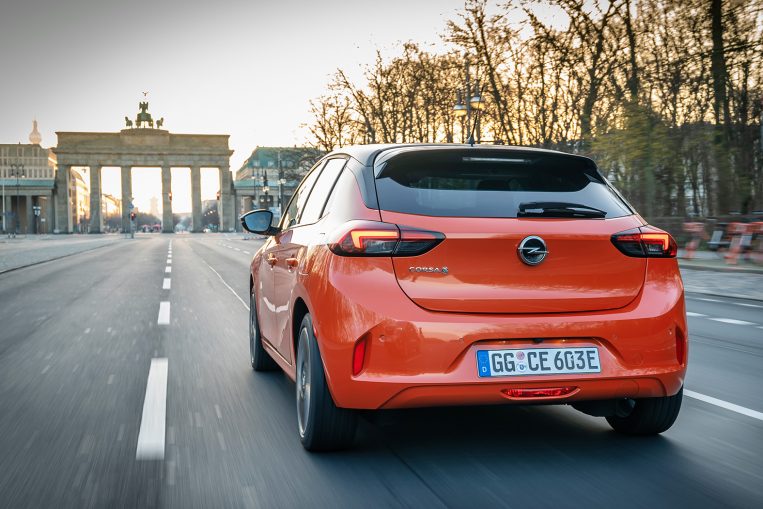
Berlin likes the Corsa-e – and excitement: the German capital was already a global leader in the electrification of the city in the 1920s.
April 2020
